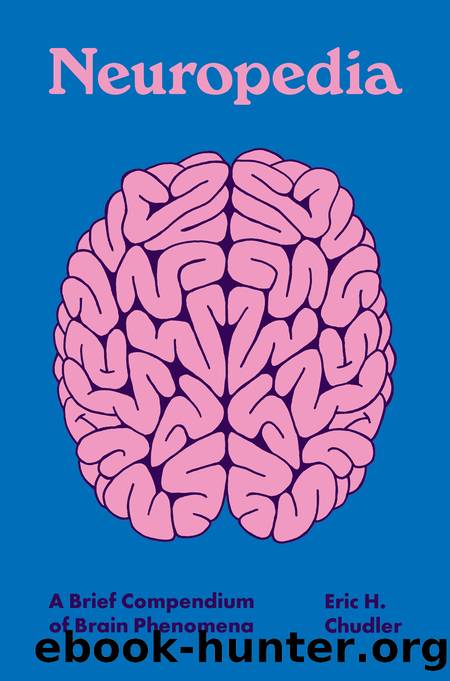Neuropedia by Eric H. Chudler

Author:Eric H. Chudler
Language: eng
Format: epub
Publisher: Princeton University Press
Published: 2022-06-02T00:00:00+00:00
Lysergic Acid Diethylamide (LSD)
Hallucinogenic drug that alters perception, mood, and sense of reality. On one late afternoon in April, 1943, Swiss chemist Albert Hofmann (1906â2008) decided to try a small dose of a new drug he created.62 On his bicycle ride home after taking the drug, Hofmann experienced visual hallucinations, feelings of paralysis, and dizziness. The cause of these strange symptoms? Hofmann had dosed himself with lysergic acid diethylamide (LSD).
LSD has no color, no odor, and no taste, but amounts as small as 0.05 mg can produce hallucinations. The effects of LSD vary depending on the dose and with the expectations and mood of the user. After taking LSD, a person may begin to feel the effects of the drug in 30 to 60 minutes and the âtripâ can last 12 hours. Common effects include visual hallucinations, anxiety, altered emotions, increased heart rate and body temperature, and distortions in the perception of time and space.
Although all of the brain mechanisms responsible for the effects of LSD are not known, it is likely that brain pathways that use the neurotransmitter serotonin are involved. Serotonin plays important roles in mood, motor control, and regulation of body temperature. The chemical structure of LSD is similar to that of the neurotransmitter serotonin, so the effects of LSD are likely caused by activation of neurons that use serotonin.
In the US, LSD is now listed as a Schedule I drug (no medical use and a high potential for abuse), with a penalty of five years in prison for possession of 1 gm.63 However, in the 1950s and 1960s, many studies investigated the possible therapeutic uses of LSD, especially for the treatment of alcoholism. Within the past ten years, there has been a renewed interest in LSD-assisted psychotherapy for anxiety, depression, and pain.64, 65 Additional research is needed to determine if LSD can be used safely and effectively to treat neurological and mental disorders.
See also Mushrooms, Hallucinogenic; Neurotransmitters; Serotonin
Download
This site does not store any files on its server. We only index and link to content provided by other sites. Please contact the content providers to delete copyright contents if any and email us, we'll remove relevant links or contents immediately.
| Administration & Medicine Economics | Allied Health Professions |
| Basic Sciences | Dentistry |
| History | Medical Informatics |
| Medicine | Nursing |
| Pharmacology | Psychology |
| Research | Veterinary Medicine |
Periodization Training for Sports by Tudor Bompa(8275)
Why We Sleep: Unlocking the Power of Sleep and Dreams by Matthew Walker(6726)
Paper Towns by Green John(5193)
The Immortal Life of Henrietta Lacks by Rebecca Skloot(4589)
The Sports Rules Book by Human Kinetics(4391)
Dynamic Alignment Through Imagery by Eric Franklin(4217)
ACSM's Complete Guide to Fitness & Health by ACSM(4060)
Kaplan MCAT Organic Chemistry Review: Created for MCAT 2015 (Kaplan Test Prep) by Kaplan(4014)
Introduction to Kinesiology by Shirl J. Hoffman(3776)
Livewired by David Eagleman(3775)
The Death of the Heart by Elizabeth Bowen(3624)
The River of Consciousness by Oliver Sacks(3606)
Alchemy and Alchemists by C. J. S. Thompson(3522)
Bad Pharma by Ben Goldacre(3428)
Descartes' Error by Antonio Damasio(3279)
The Emperor of All Maladies: A Biography of Cancer by Siddhartha Mukherjee(3164)
The Gene: An Intimate History by Siddhartha Mukherjee(3099)
The Fate of Rome: Climate, Disease, and the End of an Empire (The Princeton History of the Ancient World) by Kyle Harper(3067)
Kaplan MCAT Behavioral Sciences Review: Created for MCAT 2015 (Kaplan Test Prep) by Kaplan(2987)
